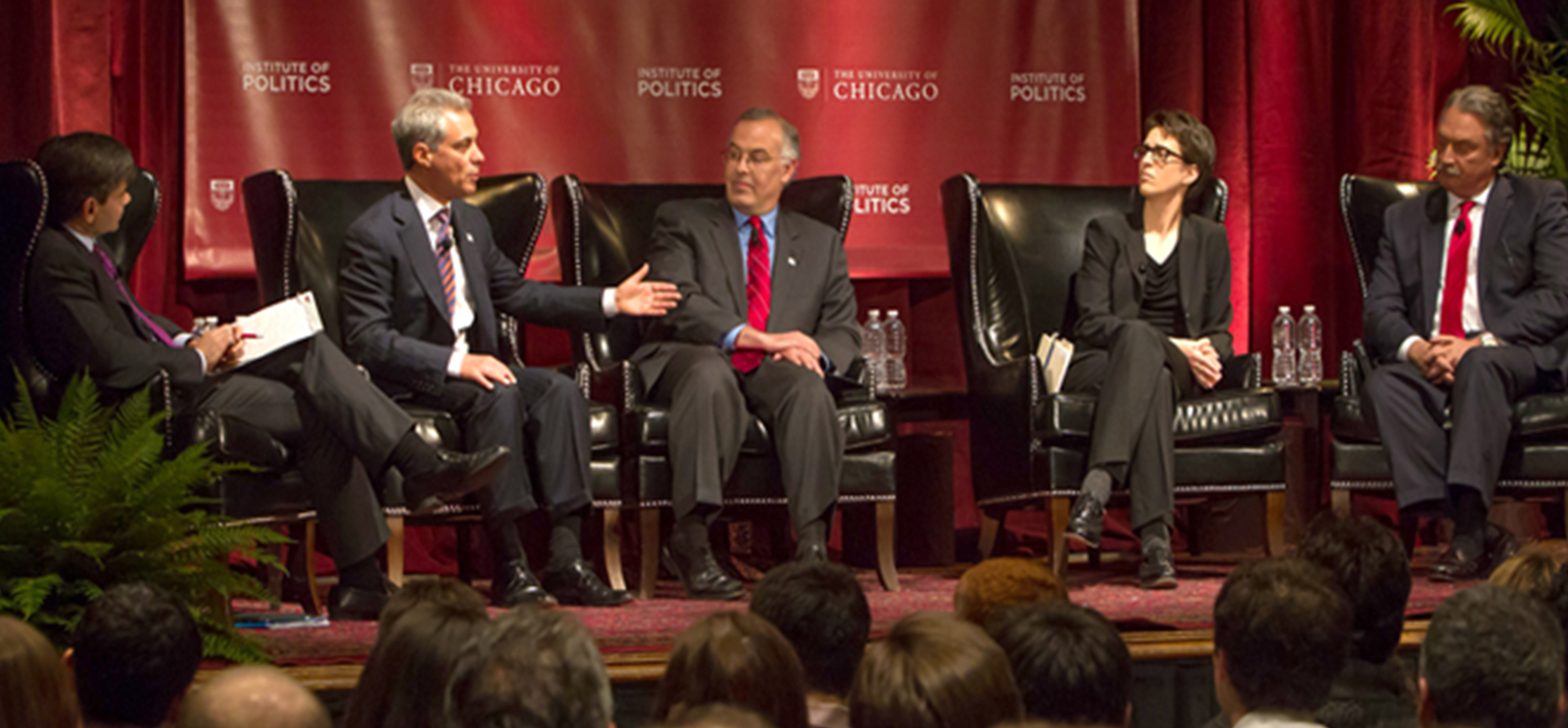
The new Institute of Politics will include events like January’s bipartisan panel of officials and analysts. (Photo by Jason Smith)
Strategist David Axelrod will lead a campus institute designed to be an ROTC for public service.
Complementing the announcement that former White House senior adviser David Axelrod, AB’76, will direct a campus Institute of Politics beginning in 2013, the University hosted a January 19 panel of well-known politicos to talk about the 2012 election.
The International House auditorium was packed with invited guests, students, faculty, and staff members to see New York Times columnist David Brooks, AB’83; Republican media consultant Alex Castellanos; Chicago mayor Rahm Emanuel; and MSNBC’s Rachel Maddow. George Stephanopoulos of ABC moderated the discussion—an event planned to demonstrate the types of speakers Axelrod, currently a strategist for President Obama’s reelection campaign, hopes to attract.
Collaborating with the Harris School of Public Policy and the College, the institute will not be an academic division but rather will provide resources to students. “Think of this as an ROTC program for politics and public service,” Axelrod said.
Although he has advised only Democrats, Axelrod and University president Robert J. Zimmer told audience members that they are committed to keeping the institute nonpartisan. Zimmer noted that the commitment reflects “the University’s culture of open debate that includes multiple and often competing perspectives.”
As a student at the University, Axelrod felt an absence of opportunities for politically minded students. He observed a low level of campus activism and wants the institute to inspire student interest. He said it’s easy to be cynical about politics, but it’s participants in the process who shape political decisions. Rather than “curse the outcome,” Axelrod encouraged students to “change the outcome, if not as a candidate then as a strategist or an adviser or as a writer.”
Bringing the panelists onstage, Axelrod said the group demonstrated the range of political views the institute will promote.
That range soon became evident, but the discussion began with a consensus: they agreed that among GOP presidential candidates, former Massachusetts governor Mitt Romney has the best shot to win the party’s nomination. Emanuel said that New Jersey governor Chris Christie or Indiana governor Mitch Daniels would be stronger candidates, and Castellanos added that the Republican Party is missing an Obama, a standard-bearer with a strong “optimistic vision” that inspires voters.
Asked if there were a third-party candidate who might challenge either nominee, Maddow said that it would most likely be Texas representative Ron Paul. The left, she added, would “eat alive” any liberal trying to oust Obama.
Whatever happens in the November election, Axelrod will return in early 2013 to his Chicago academic roots, bringing his political experience with him. The Institute of Politics will have three main components—attracting political professionals to campus as fellows, a student internship program, and regular events featuring speakers such as the group who visited in January. The mission, Axelrod says, is to give students “a real-life sense of public engagement—what it entails, what it offers, why it’s important.”
